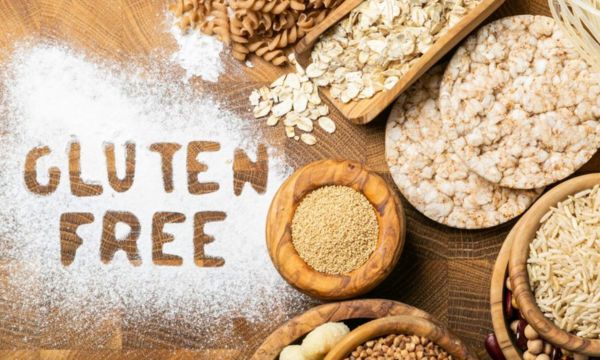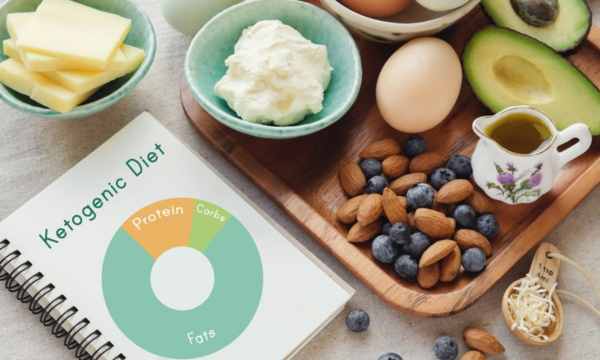Understanding Daily Nutritional Needs
With all the nutritional recommendations out there, it can be difficult to figure out what to eat every day. The food we eat provides our body with the energy it needs. It can also affect our mental clarity and our overall health. But the need for a balanced diet can change based on age, gender, physical activity, health goals, etc. In this in-depth study, we will find out the details of our daily nutritional needs. We will look at the most important nutrients, their sources and the importance of a balanced diet.
The Foundation: Macronutrients
1. Carbohydrates Provide Energy to the Body
Carbohydrates are the body’s main source of energy. They are found in foods such as grains, fruits, vegetables and legumes. The complex carbohydrates in whole grains provide you with long-lasting energy, while the simple carbohydrates in fruit give you quick energy. Consuming the right amount of complex and simple carbohydrates can keep your energy levels stable throughout the day.
2. Protein: The Building Block of Life
Proteins are needed to build and repair cells. Meat, chicken, fish, dairy products, legumes and nuts are all good sources. Protein is also necessary for the functioning of enzymes and the production of hormones. By getting proteins from different sources, you ensure that you get all the essential amino acids, the building blocks of proteins.
3. Fat is Important for the Functioning of the Body
Avocados, nuts, seeds and olive oil all contain healthy fats. These fats are important for brain health, hormone production and fat-soluble vitamins. Moreover, they provide you with long-lasting energy. Although fat is high in calories, consuming the right kind and amount is key to a healthy diet.
The Body’s Support System Consists of Micronutrients:
1. Vitamins: Catalysts of Body Functions
Vitamins are important for many aspects of the body, such as keeping the immune system strong, healing wounds and producing energy. You can find them in fruits, vegetables, whole grains and dairy products. Each vitamin has a different role. For example, vitamin C is important for a healthy nervous system and vitamin D is important for healthy bones.
2. Minerals: The Building Blocks of Health
Minerals such as calcium, potassium, iron and magnesium are necessary for healthy bones, working muscles and air circulation in the body. Minerals can be found in dairy products, green leafy vegetables, lean meat and nuts. Deficiencies can lead to all kinds of health problems, which shows how important a varied diet is.
3. Hydration: The Nutrition People Forget
Water is often taken for granted, but it is important for life. It keeps body temperature stable, promotes digestion and helps the body absorb nutrients. Not drinking enough water can affect physical and mental function. People’s water needs vary, but in general you should drink at least 8 glasses of water per day, taking into account your activity level and the weather.
Calories: Take In and Burn the Right Amount of Energy
Maintaining a healthy weight requires a balance between the calories you eat and the calories you burn. When you eat more calories than your body needs, you gain weight. When you eat fewer calories than your body needs, you lose weight. To maintain a healthy weight, it’s important to know how many calories you need based on your age, gender, activity level and health goals.
Special Things to Consider: Tailoring Nutrition to Different Needs
1. Build a Solid Foundation for Children and Adolescents
A growing body needs different types of food. Bone growth and overall health depend on getting enough protein, calcium and vitamins. Developing good eating habits from a young age is the first step to eating well throughout your life.
2. Pregnant and Lactating Women: Caring for Two Lives
Folic acid, iron and calcium are additional nutrients that pregnant and breastfeeding women need to help their babies grow and develop. It is also important to drink enough water during these times. It is important to get personalized advice from a healthcare provider about what you should eat.
3. Elderly: Caring for the Aging Body
As people get older, their food needs change. Older adults generally need more calcium and vitamin D to keep bones healthy, and enough protein to keep muscles in good shape. As people get older, the feeling of thirst disappears. This makes staying hydrated even more important.
4. Improving Performance: How Athletes Do It
Because athletes are more active, they need more energy and nutrients. Carbohydrates provide quick energy, proteins help muscle repair, and staying hydrated is important to prevent dehydration and maintain performance levels.
Building a Balanced Plate: Daily Nutrition Tips
- Fill Half Your Plate with Fruits and Vegetables: They are rich in vitamins, minerals and fiber, which are good for digestion and overall health.
- Eat Lean Proteins: Choose low-fat meat, fish, vegetables and tofu. These provide you with the amino acids you need without too much fat.
- Whole Grains are Best: Whole grains such as brown rice, quinoa and whole grains contain more complex carbohydrates, fiber and nutrients than processed grains.
- Use Fats that are Good for You: Olive oil, bananas, nuts and seeds should be used sparingly. These fats help keep your brain healthy and provide you with long-lasting energy.
- Limit Processed Foods and Foods with Too Much Sugar: Too much sugar can cause many health problems. Most processed foods are high in salt and fat, which is bad for you.
Conclusion:
To understand your daily nutritional needs, you don’t have to follow a strict diet. Instead, you should develop healthy, balanced eating habits. Everyone is different and their food decisions should fit their needs and goals. By understanding the body’s needs and making conscious nutritional choices, people can eat well, which benefits their overall health, energy and well-being. Nutrition is more than just filling your belly. It also gives your body the tools it needs to work optimally so you can live a fulfilling and happy life.
FAQs:
1. Why is it important to know your daily nutritional needs?
Understanding nutritional needs ensures that an individual receives the correct nutritional balance for optimal health. It helps make smart food choices and supports overall health.
2. How do I determine my specific nutritional needs?
Nutritional needs vary based on factors such as age, gender, activity level and health goals. Consultation with a healthcare provider or registered dietitian can provide personalized guidance based on individual needs.
3. What are macronutrients and micronutrients? Why are they important?
Macronutrients, including carbohydrates, proteins and fats, provide energy and support body functions. Micronutrients such as vitamins and minerals are essential for various physiological processes such as immunity, metabolism and bone health.
4. How do you create a nutritionally balanced daily plate?
A balanced meal includes a variety of vegetables, fruits, lean proteins, whole grains and healthy fats. These ingredients provide essential nutrients, fiber and energy to promote overall health and vitality.
5. Are there specific nutritional considerations for different stages of life (such as pregnancy or the elderly)?
Yes, different stages of life have unique nutritional needs. Pregnant and lactating women, children, seniors and athletes need specific nutrients to support growth, development and physical activity. Consulting with a healthcare professional can ensure that you receive proper nutrition during your internship.
 Living Gluten-Free: A Comprehensive Guide
Living Gluten-Free: A Comprehensive Guide
Gluten-free living has gone from being the only option for a small group of people to being […]
More Going Vegan: What You Need to Know
Going Vegan: What You Need to Know
Veganism is not just a choice about what to eat; It’s also a commitment to a mindset […]
More The Ketogenic Diet: Benefits and Risks
The Ketogenic Diet: Benefits and Risks
In recent years, the ketogenic diet, also known as the ‘ketogenic diet’, has become very famous as […]
More